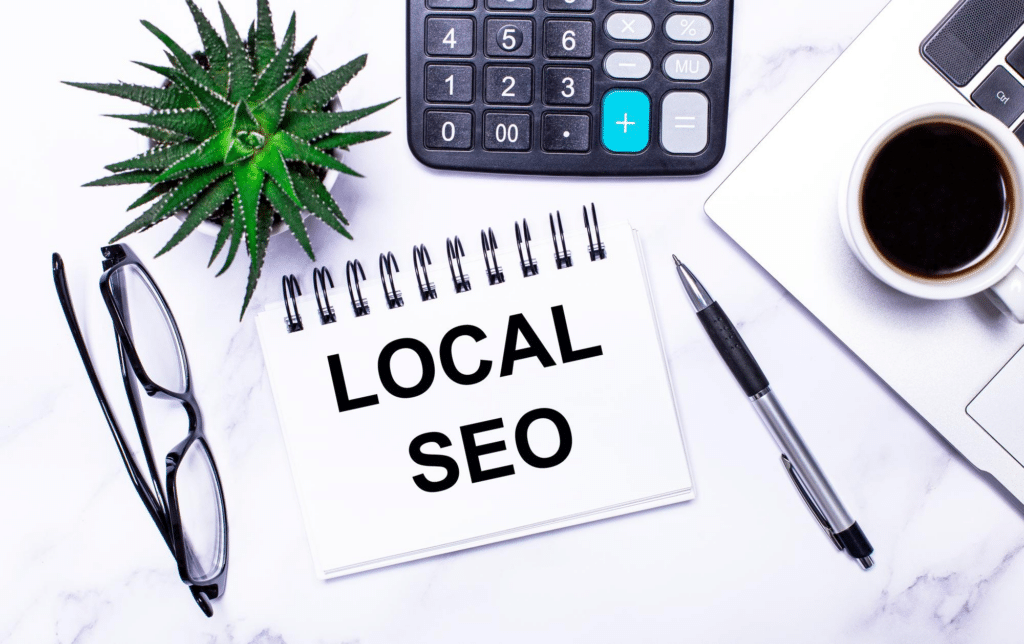In today’s digital age, local search engine optimisation (SEO) has become increasingly important for businesses wanting to target customers in specific geographic areas. Optimising your website for local SEO helps you increase visibility, attract relevant local traffic and drive more customers to your physical location. In this blog post, we’ll explore practical strategies and techniques to optimise your website for local SEO, helping you connect with local customers.
Conduct Local Keyword Research:
Start by identifying relevant local keywords that your target audience is likely to use when searching for businesses like yours. Use keyword research tools, such as Google Keyword Planner or Ubersuggest, to uncover location-specific keywords. Focus on long-tail keywords that include your city, town, or region along with the product or service you offer. Incorporate these keywords naturally throughout your website’s content, including headings, titles, meta tags and page copy.
Optimise Google Business Profile Listing:
Claim and optimise your Google Business Profile (GBP) listing, as it plays a crucial role in local SEO. Ensure that your business name, address and phone number (NAP) are accurate and consistent across all platforms. Add relevant categories, business hours, your website URL and high-quality photos. Encourage customers to leave reviews on your GMB listing, as positive reviews can boost your local search rankings.
Create Location-Specific Landing Pages:
If you have multiple locations or serve different areas, create dedicated landing pages for each location. Optimise these pages by including location-specific keywords in the page titles, headings, and content. Provide unique and valuable information about each location, including address, contact details, local testimonials and directions. This helps search engines understand your relevance to specific geographic areas and improves your visibility in local search results.
Optimise On-Page SEO Elements:
Ensure that your website’s on-page elements are optimised for local SEO. Include your business name, address, and phone number (NAP) on every page, preferably in the footer or header. Use schema markup to provide search engines with structured data about your business, including location, contact information and operating hours. Optimise meta tags, titles and headings with relevant local keywords to enhance your website’s visibility in local search results.
Build Local Citations and Backlinks:
Local citations and backlinks from reputable local directories, industry-specific websites and local organisations can significantly boost your local SEO efforts. Ensure that your business is listed accurately and consistently across various online directories such as Yelp and industry-specific directories. Seek opportunities to collaborate with local organisations, charities or events to earn valuable backlinks from their websites.
Encourage Online Reviews:
Positive online reviews not only enhance your online reputation but also play a role in local search rankings. Encourage your satisfied customers to leave reviews on platforms such as Google, Yelp, or industry-specific review sites. Respond to reviews, both positive and negative, to show engagement and a commitment to customer satisfaction. Monitor and manage your online reputation to address any potential issues promptly.
Mobile-Friendly and Fast-loading Website:
Optimise your website for mobile devices, as local searches are often performed on smartphones. Ensure that your website is mobile-responsive, loads quickly, and provides a seamless user experience across different devices. Mobile optimisation is crucial for improving local search rankings and enhancing user engagement.
Conclusion:
Optimising your website for local SEO is essential for attracting local customers and increasing your online visibility in specific geographic areas. By conducting local keyword research, optimizing your Google My Business listing, creating location-specific landing pages, and implementing on-page SEO strategies, you can improve your chances of appearing in local search results. Building local citations, earning backlinks, and encouraging online reviews further enhance your local SEO efforts. Stay focused on providing valuable content and a frictionless user experience to connect with your local audience and drive more customers to your business.

